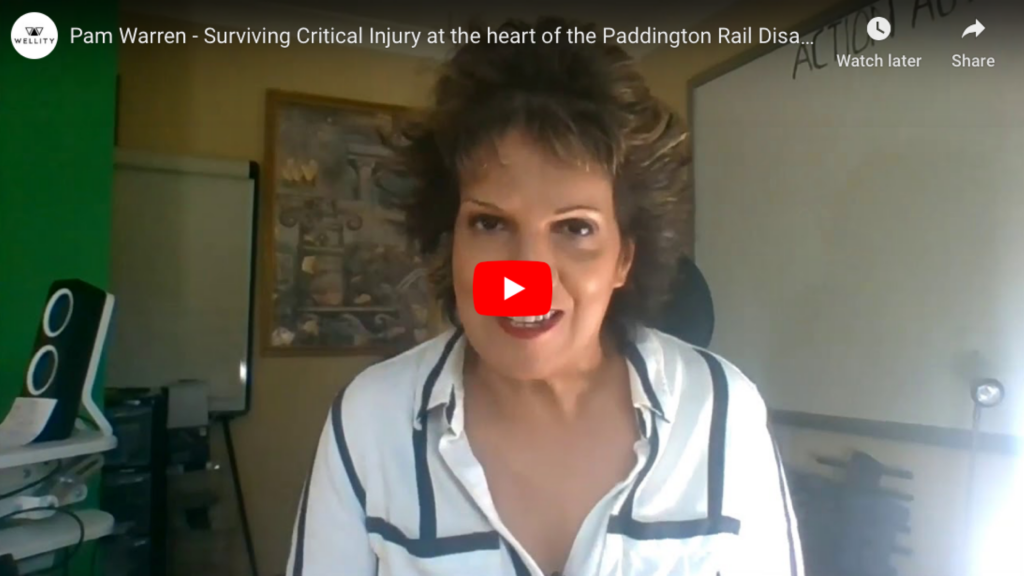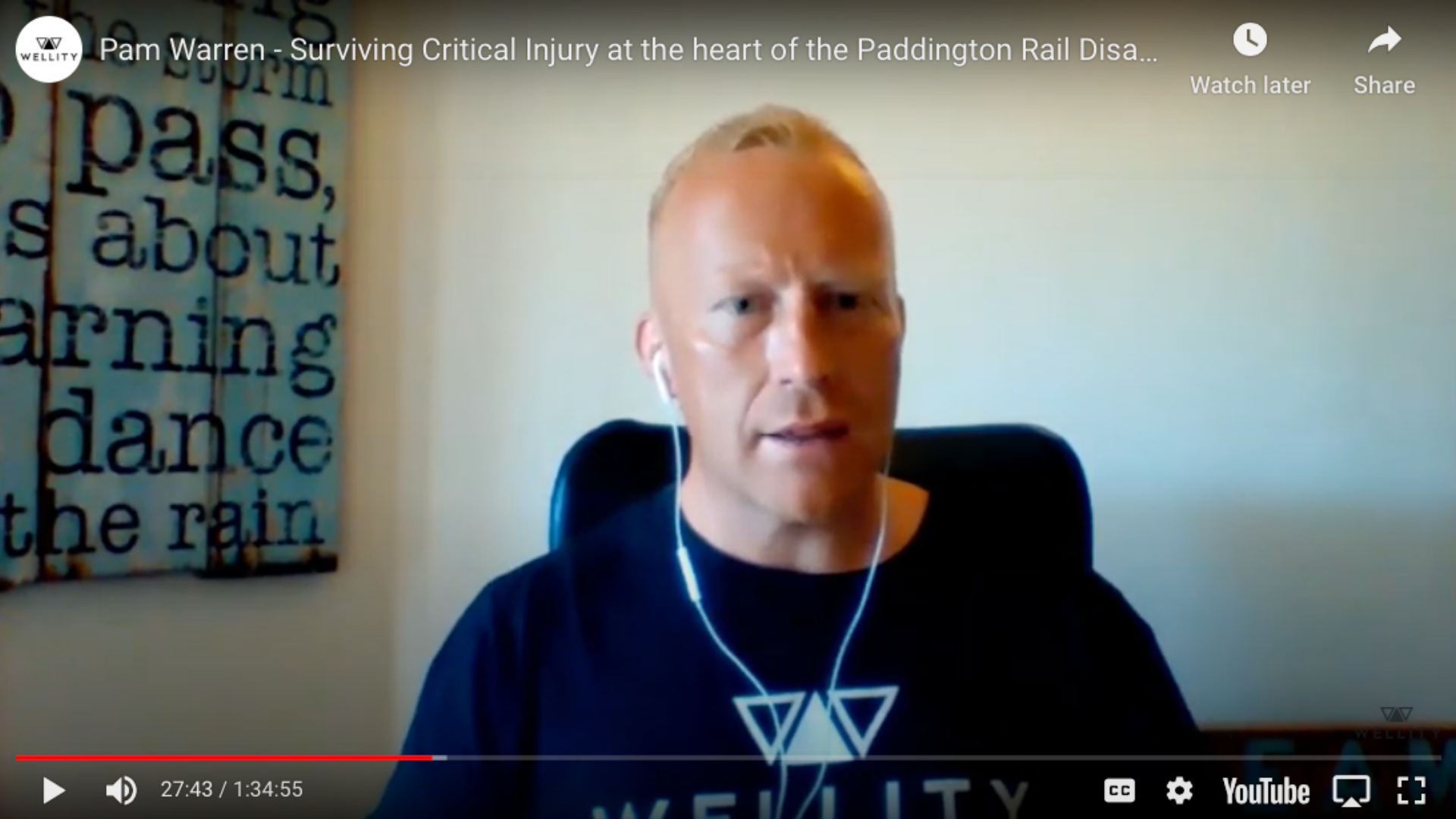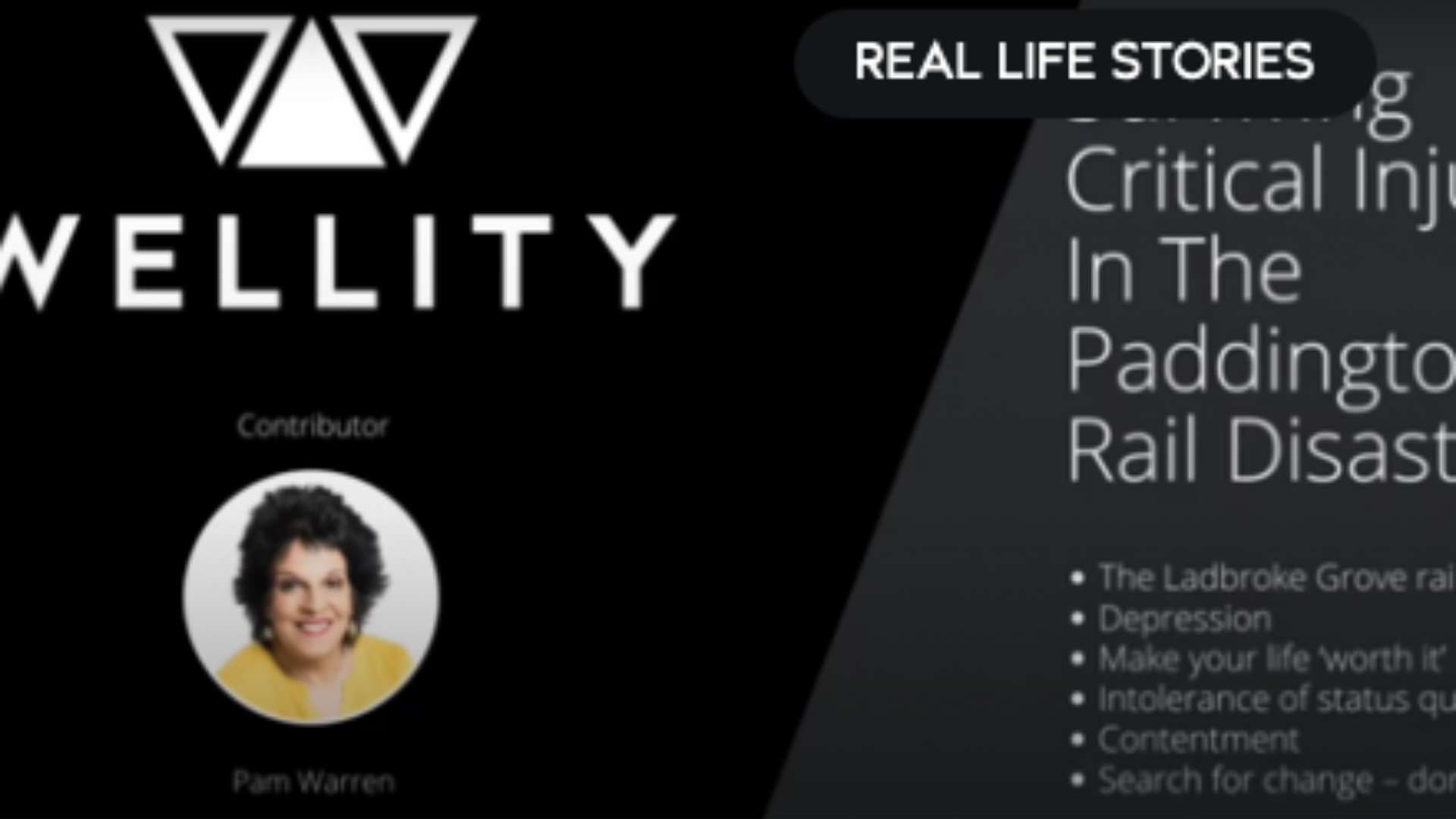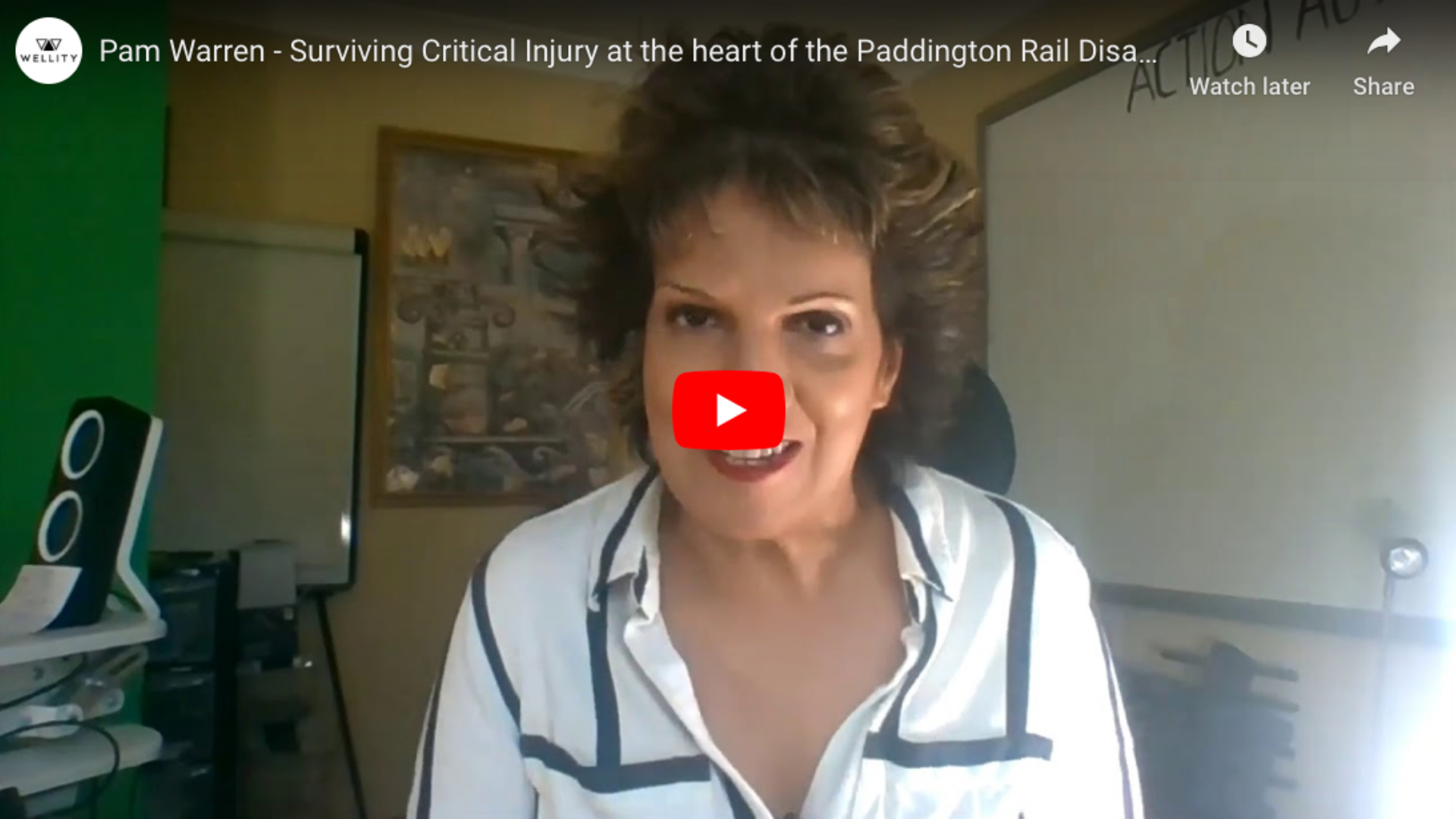My interview with Pam Warren (Paddington train crash survivor)
Guest post by Simon Scott-Nelson from Wellity
On PTSD, resilience, and doing life differently
What is a 'Fug'?
‘Fug’ is the name she gives to her short-lived, but recurring, episodes of dark depression. These are a result of the devastating Paddington train crash of 1999 that she miraculously survived but that left her with scarring and PTSD.
I interview many people, and it’s always a privilege when they share with me the wisdom they’ve discovered, often at great personal cost. And this morning was no exception.
Having gone through such a cataclysmic event, Pam now serves as an inspiration, hope, and guiding light. Generously sharing what she has learnt, she inspires others to move forward in life with courage. Her message is one of taking responsibility for ourselves while embracing help from others. So we can live our best life, fulfilled as active and contributing members of our communities and society.
You can watch the full video of the interview here. But here’s a quick look at my key takeaways from this extraordinary chat.

‘It hasn’t been worth it!’
That was the thought that struck Pam as the fireball rolled violently towards her seconds after the two trains collided.
Despite having her own highly successful business in financial advising, this meant little in those dark seconds.
And now, 20 years on, it is clear that Pam has since remodelled her life to make it worth it.
Her goal, in her words, now is this: To be able to look back when she’s on her death bed, and know that ‘it was worth it.’ That she made a difference in people’s lives and had fun doing so.
Her story progresses. She survived the train crash, a three-week induced coma, double pneumonia, and the seemingly endless operations, having suffered horrendous burns.
She then had to learn how to do life differently mentally.
Without the diagnosis of PTSD that would later come, she was unaware of the dangerous psychological damage that was building. And that would culminate in a suicide attempt.
In her own words, she was saved at this point by people. People who came into her life — first a psychiatrist, then a psychologist, and then one very special, Simon Weston CBE (already a hero of mine).
Take away point: we need people around us who we can trust — this is key to our well-being. And is vital in different spheres, including the workplace.
Quick side note, I am passionate about normalizing mental health. We all have it, after all! And we all have mental health challenges at one time or another. We need to remove the stigma around these issues, and the more we talk about this area of our wellbeing, the more normal it will become. And the stronger we will all be – mentally, physically, and emotionally.
Another pearl I took away from this interview is this. Pam found herself in this crisis through no fault of her own. But she came to realise she had to take responsibility for herself. For her, this meant accepting the situation and making positive choices to move forward.

'What is your definition of well-being?'
Pam’s answer to this question I regularly ask my guests:
‘Contentment.’
Sounds simple enough, but how do we achieve contentment? Pam has found the answer to be making small changes incrementally towards the positive, towards contentment. And regularly looking back to review the progress made.
She believes as we work towards contentment, happiness becomes ever more achievable.
Also important to this: valuing the people around us, developing supportive friendships, and building a trustworthy support network.
'But is it possible to find contentment without losing everything first?'
We hear many inspirational stories about life-changing moments, but can we grasp contentment without going through an event so extreme? (I hope so!) Pam believes we can, but that it is harder because we are programmed from a young age by conventional thinking.
For her, the train crash, and losing everything, had the unlikely positive effect of knocking out all that conventional conditioning.
But this is not the only way to achieve such freedom. We can question ourselves and how we do life. And we can discover other ways to live.
'If you could give others just one key takeaway, what would it be?'
Transformation towards contentment comes from yourself… Take those tiny steps towards contentment regularly. And then, every so often, look back and recognise how far you’ve come.
One last closing quote that I’m adopting as my own (thank you, Pam!):
“It’s not important how the world looks at me, it’s more important how I look at the world.” Pam Warren
Many thanks to Simon Scott-Nelson from Wellity for sharing his thoughts in this post. You can find out more about Simon and why he founded Wellity here.
As a leadership trainer and professional online speaker, I (Pam) help individuals and businesses move forward with confidence, overcome challenges, and much more. To discover how I can assist you, check out my in-person and virtual services.
Alternatively, book a call with me, and let’s chat!





